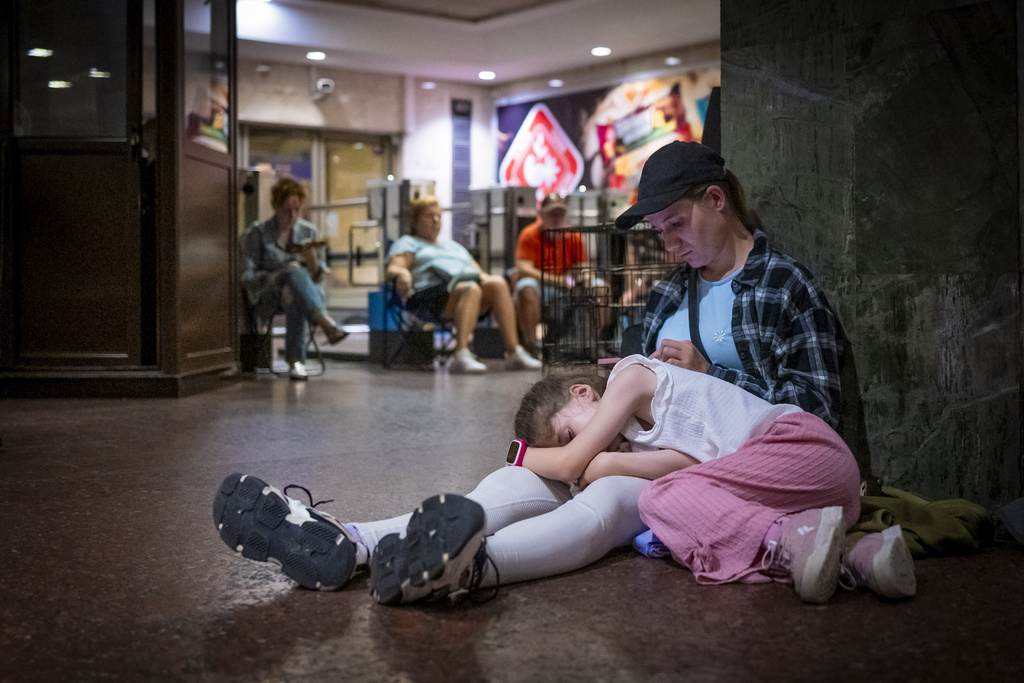What are the Goals of Russian State Terrorism Against Ukrainians?

What are the Goals of Russian State Terrorism Against Ukrainians?
The recent attacks on Ukrainian civilians in numerous cities can be used as an example of the goals of Russian state terrorism against the Ukrainian people. But there are many more examples that prove that Russia should be recognized as a terrorist state, as a number of parliaments and international organizations have already stated.
Russia's attacks on civilian infrastructure, medical facilities (including the Okhmatdyt hospital) and the energy sector are systematic and not related to military objectives, but are aimed at intimidating the population and destabilizing Ukraine. This strategy of terror is a consequence of Russia's defeats on the frontline.
Systemic Terror: Kryvyi Rih, Sumy, Kyiv
On April 13, 2025, Palm Sunday, the Russian army carried out one of the bloodiest attacks during the full-scale invasion: two Iskander-M missiles hit the center of Sumy, destroying a trolleybus, residential buildings, and a university building. At least 34 civilians were killed, including two children, and more than 100 people were injured (The Guardian). This attack was yet another episode in a systematic campaign of Russian state terrorism that has a clear goal: to intimidate Ukrainian society and force Ukraine to surrender.
In the course of just one week, Russia struck several Ukrainian cities. On April 9, 2025, missiles hit a residential neighborhood in Kryvyi Rih. Such attacks, in particular on Sumy, Kyiv, Kharkiv, and Mykolaiv, are part of a targeted terror strategy.
Earlier, on July 8, 2023, a rocket hit the National Children's Hospital “Okhmatdyt” in Kyiv. The strike on the medical facility, where surgeries were taking place, claimed the lives of children and medical workers and destroyed equipment. This crime received a wide international response and became a tragic symbol of Russian terror against civilians.
Since 2022, Russia has been implementing a campaign of systematic attacks on Ukraine's energy infrastructure: TPPs, substations, hydroelectric power plants. In the winter of 2022-2023, dozens of cities were left without electricity, water, and heat. In 2024-2025, these attacks continued. These are classic signs of state terror aimed at creating a humanitarian catastrophe and moral pressure on the civilian population.
Russia uses massive missile attacks not for military expediency, but as a blackmail tool. After failures on the frontlines, the Kremlin seeks to “defeat” Ukraine by demoralizing its citizens. This is a strategy of weakness, reflecting the loss of initiative in the war.
Terror is a way to make Ukrainians lose faith in victory, to intimidate them, and to undermine their will to resist. But as the experience of recent years shows, Ukrainian society only consolidates in response to such attacks.
After a missile strike on the center of Sumy on April 13, 2025, which killed at least 34 civilians, Russian propaganda immediately launched a disinformation campaign to justify or deny its responsibility for the attack. According to the Center for Strategic Communications and Information Security, five main fake versions were spread:
"Strike on an industrial facility" – it was claimed that the target was an industrial facility, although in fact the missiles hit the city center, destroying a trolleybus and damaging civilian buildings.
"Strike on a military concentration" – propaganda claimed that the military was present in the area of the attack, but no evidence was provided, and only civilians were among the victims.
"It's not us, it's Ukrainian air defense" – attempts to shift the responsibility to Ukrainian air defense, although the nature of the destruction indicated a direct hit by Russian missiles.
"Zelenskyy shoots down missiles over people himself" – absurd conspiracy theories were spread to divert attention from the real culprits.
"It's good for Zelenskyy because of PR" – cynically claimed that the attack was beneficial for the Ukrainian leadership to improve its rating, ignoring the tragedy and human casualties.
These contradictory versions were aimed at confusing the audience and diverting attention from the fact that Russia committed another war crime. This approach is typical of Russian propaganda, which systematically uses disinformation to justify its aggressive actions.
How did the international partners react?
The international community is increasingly responding to Russia's crimes. As of April 2025, Russia was officially recognized as a state sponsor of terrorism or a terrorist state:
European Parliament (November 2022),
Parliaments of Lithuania, Latvia, Estonia, Czech Republic, Poland, the Netherlands, Canada,
Senate of France, Senate of the Czech Republic,
US state and local governments, including resolutions of individual states,
NATO Parliamentary Assembly.
These decisions are based on the systematic, large-scale and targeted nature of Russia's crimes against civilians, which have all the hallmarks of state terrorism.
Following the tragedy in Sumy, the Ukrainian Congress Committee of America (UCCA) issued an urgent call to action, insisting:
on the immediate provision of additional air defense systems to Ukraine,
on the imposition of a full energy embargo against Russia, and
on the legal recognition of Russia as a terrorist state in international courts.
This call was supported by representatives of the Ukrainian diaspora in the United States, members of Congress, and human rights organizations.
Massive shelling of civilians, attacks on medical facilities, destruction of energy, and deliberate disregard for international humanitarian law are all characteristics of a terrorist state. Russia is not just violating the rules of warfare – it is systematically choosing terror as an instrument of state policy.
There is no reason to believe that these crimes are accidental or caused by “military necessity.” This is a targeted campaign with only one goal: the destruction of Ukrainian statehood and the subjugation of the Ukrainian people through fear and violence.
That is why the international recognition of Russia as a terrorist state is not only a legal necessity, but also a moral obligation of the civilized world.
Petro Oleshchuk, Political scientist, Ph.D, Expert at the United Ukraine Think Tank